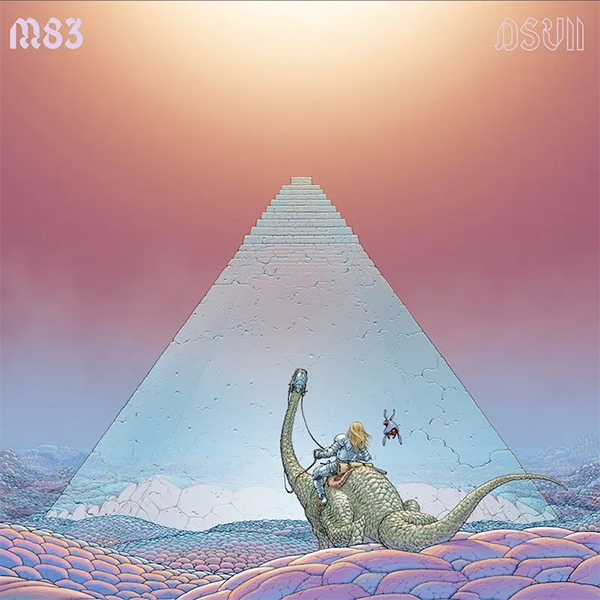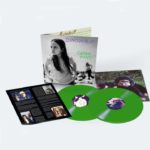“For this album, I didn’t want to care about being successful, I guess.” said Anthony Gonzalez in a recent interview. Artists undergo a lot of pressure when creating and promoting an album. They have to please fans, critics and create material that’s catchy and danceable enough to translate to the stage, where most of the money is made. M83‘s creator wanted to take break from playing the music media game, especially always trying to unfairly compete with the standards set by their own breakthrough hit ‘Midnight City’. So he has created an album that could potentially untick all the boxes for a successful release. It’s not danceable, it’s not catchy and unlikely to have radio airplay. Experimental ambient record DSVII (which stands for Digital Shades Volume 2 and is a sequel to 2007’s DSVI) is a piece of art made for the artist himself, rather than to please record labels. It’s the French artist trying to stray away from the identical sounds of modern music, which were growing tiresome.
M83 continue their ongoing theme of childhood inspiration. Following up an album that delightfully referenced the sound old TV theme music, in 2016’s criminally underrated Junk, the latest LP also looks back nostalgically to retro music but this time it’s old video game soundtracks. However don’t expect the 8-bit noises of coin-collecting and power-ups, as Anthony Gonzalez reflects the style of computer game music in a rather less obvious way: through the concept of simplicity and innocence (hear the harmlessness of ‘Oh Yes, You’re There Everyday’).
Tracks aren’t complex, don’t contain an abundance of layers and aren’t scary or threatening. They are gorgeous and naive and sound like a young boy entering an unknown adventure, Link from The Legend of Zelda, if you will. It contains mostly heavenly synths, that like Fatima Al Qadri’s album Brute sound like a choir of angels breathing life in and breathing life out, whilst fading in and out of view (‘A Bit of Sweetness’, ‘Taifun Glory’), forest-dwelling flute imagining a role-playing-game (‘Lunar Son’) and mystical analog picturing a puzzle game set in Egypt (‘Feelings’).
‘Colonies’ and ‘Lune de Fiel’ use atmospheric drone, with the latter going into almost epic prog rock territory, ‘A Word of Wisdom’ and ‘Meet The Friends’ use the same kind of saccharine family-sitcom piano that links them to the previous album Junk, while the piano performance on ‘Jeux d’enfrants’ resembles a sad moment in the film The Truman Show. Beautiful moments on the album include ‘Mirage’, a You Tube comment described it best as like surfing a smooth ocean wave; it showcases the quality when M83 create film soundtracks (in particular Oblivion), and the 7-minute ‘Temple of Sorrow’, a patient march towards a cult practice inside a pyramid before an epic post-rock ending.
The album is entirely instrumental. Without the lyrics one must imagine the story for themselves. The titles of the tracks hint at a genre, from ‘Goodbye Captain Lee’, ‘Lunar Sun’, ‘Hell Riders’, ‘Colonies’, picturing a magical fantasy existing in some kind of off-planet realm such as Arrakis from Dune. Furthermore, French filmmaker Bertrand Mandico has made a trilogy of short sci-fi clips called Extrasus which use three of M83’s songs to give mood to a surreal high-concept tale. A blend of Stephen King (about a writer who becomes part of his story), Jim Henson, Michael Ende and Frank Herbert. Although the story isn’t clear, it does add vigour to M83’s music.
It takes a few listens to really appreciate this album, even though it’s best heard on the headphones with a level of patience and understanding of the mood that Gonzalez is attempting to create. Simplicity, control and freedom is what the M83 founder wants in his music career right now and this latest creation no doubt does us listeners to the simpler and care-free times in our childhoods.




